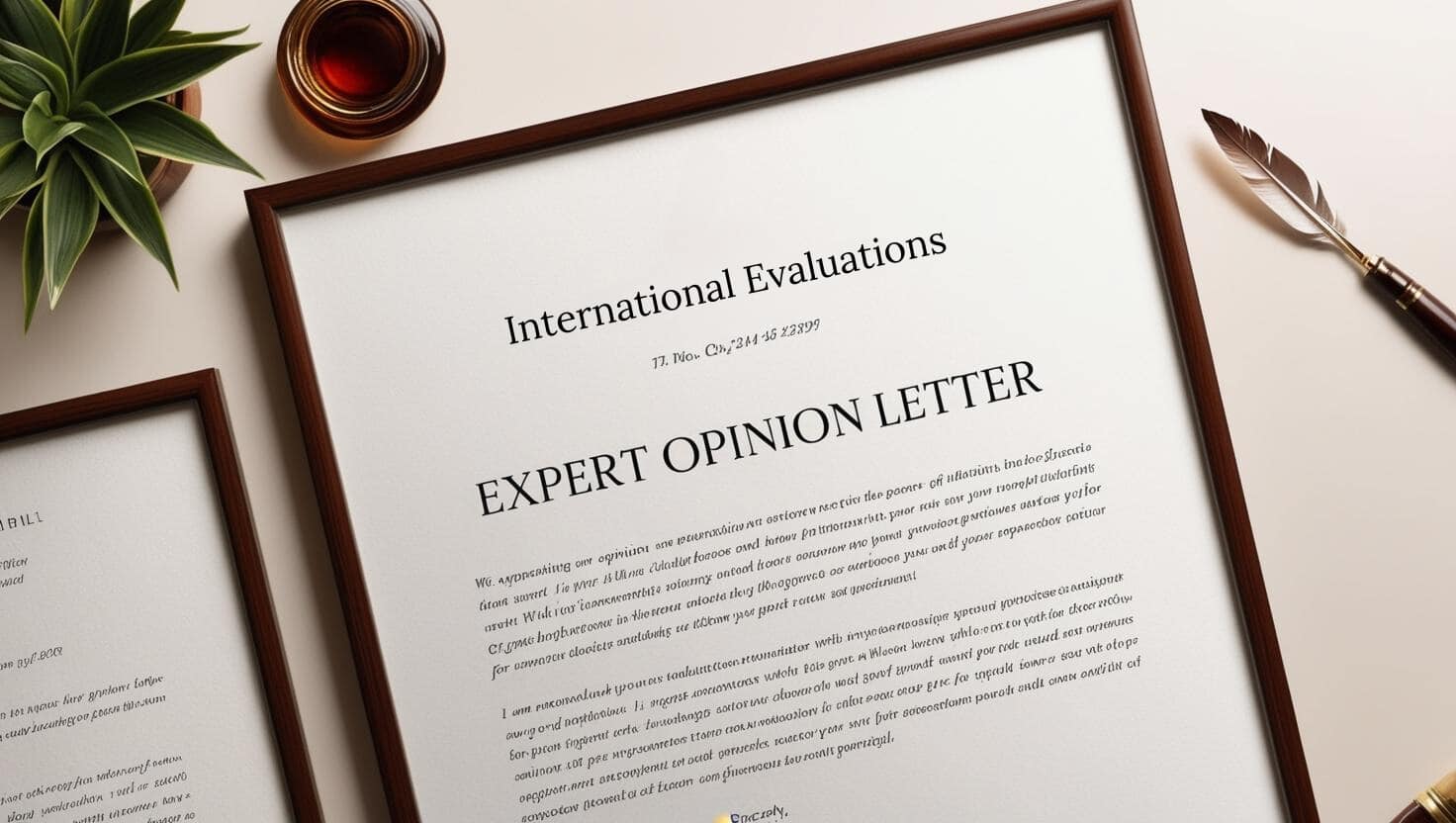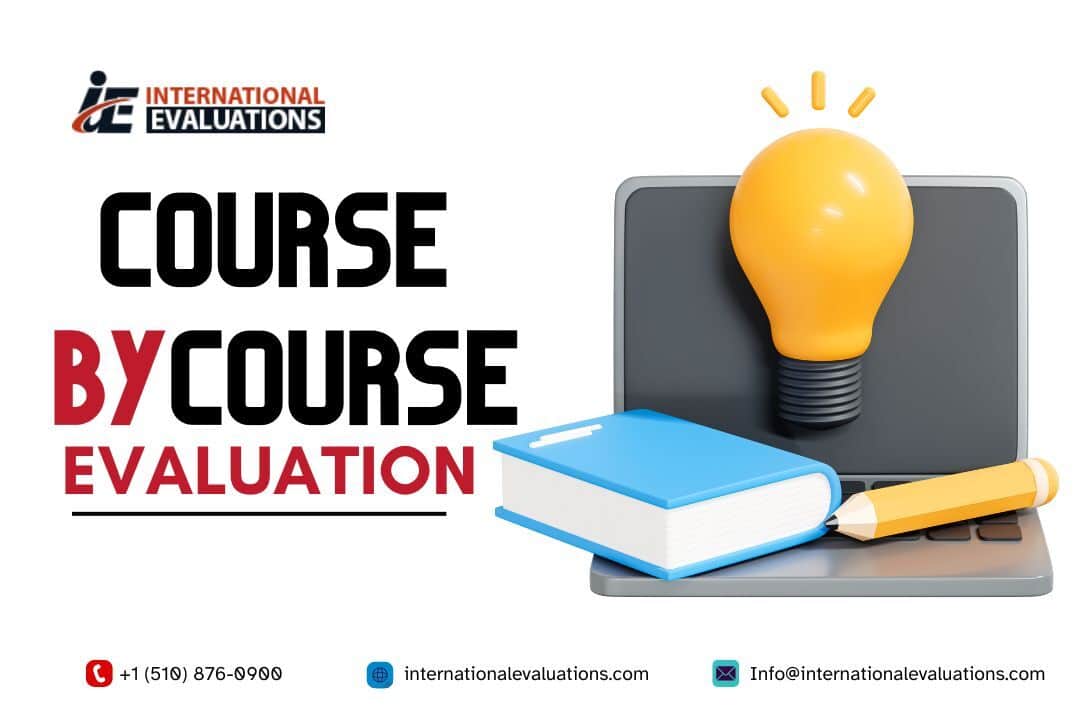expert opinion letter for h1b rfe
Introduction
In a significantly globalized world, the need for precise scholastic credential examinations has never ever been more essential. As people seek to further their education or gain work across borders, organizations and employers need a trustworthy understanding of the certifications being presented. This necessity has actually led to the increase of international credential examination services, a sector committed to evaluating instructional achievements from different countries.
Among numerous assessment methods, the course-by-course credential evaluation stands out as one of the most comprehensive and precise approaches. This detailed analysis not just translates academic credentials however likewise assesses course material, grades, and general academic performance. In this article, we will delve into the complexities of course-by-course evaluations, exploring their significance, methodology, advantages, and much more.
Understanding Course-by-Course Evaluations
What is a Course-by-Course Evaluation?
A course-by-course examination provides in-depth insight into an individual's academic history. Unlike a basic evaluation that sums up degrees and institutions went to, a course-by-course evaluation breaks down:

- Each course taken Grades received Credit hours earned Comparisons with comparable courses in the U.S. educational system
This meticulous method permits a nuanced understanding of a candidate's academic capabilities.
Why Are Course-by-Course Evaluations Important?
The importance of course-by-course assessments can not be overemphasized. Here are some reasons they are pivotal:
Precision: They use in-depth assessments that can influence admissions decisions or job placements. Transparency: Provides clear insights into foreign education systems. Employability: Lots of companies choose candidates with well-documented scholastic histories.Who Requirements Course-by-Course Evaluations?
Individuals looking for college or job opportunity abroad often require these examinations. Typically, they include:

- International trainees applying to U.S. colleges or universities Professionals looking for licensure in managed fields Immigrants pursuing task opportunities in different sectors
The Process of Course-by-Course Evaluations
Steps Involved in a Course-by-Course Evaluation
The journey through a course-by-course assessment involves numerous crucial actions:
Document Submission: Applicants submit all appropriate transcripts and documents. Verification: The assessing firm confirms the authenticity of these documents with providing institutions. Analysis: Each course is evaluated for equivalency in terms of U.S. standards. Report Generation: A comprehensive report is developed detailing findings.Required Paperwork for Evaluation
To go through a course-by-course examination successfully, applicants need to provide particular paperwork:
- Official records from all post-secondary institutions attended Translations (if necessary) by accredited translators Any extra supporting documents requested by the examining agency
International Credential Assessment Services
The Role of Credential Examination Services
International rfe response eb1a credential evaluation services function as intermediaries between foreign instructional systems and U.S.-based institutions or employers. These firms examine foreign degrees and determine their equivalence in terms of U.S. education.
Choosing the Right Assessment Service
Selecting a proper credential examination service can significantly impact your application procedure. Consider factors such as:
- Accreditation status Experience with particular nations' instructional systems Types of evaluations provided (basic vs course-by-course)
Benefits of Course-by-Course Credential Evaluations
Enhanced Academic Transparency
One significant benefit is enhanced transparency concerning a candidate's academic background; institutions can evaluate prospects more effectively.
Improved Work Opportunities
For task seekers, having a detailed report increases trustworthiness and improves chances during hiring processes.
Streamlined Admissions Processes
Colleges and universities can make quicker choices based upon thorough reports that provide clarity on a candidate's qualifications.
Work Experience Evaluation
Understanding Work Experience Evaluation
In addition to scholastic credentials, numerous candidates possess considerable work experience that might likewise require recognition through a skilled viewpoint letter or similar evaluation method.
Why is Work Experience Important?
Employers often consider work experience alongside formal education when identifying viability for positions. Having this assessed can showcase abilities and competencies gained through useful application instead of just theoretical knowledge.
Expert Viewpoint Letters
What is an Expert Viewpoint Letter?
A professional viewpoint letter functions as documents from experts vouching for a person's credentials based on their evaluation of the applicant's work experience relative to industry standards.
Importance of Expert Viewpoint Letters
These letters validate non-traditional knowing experiences and bridge spaces in between formal education and real-world applications-- basically improving one's profile in competitive task markets.
Business Strategy Evaluation
Understanding Company Strategy Evaluation
For business owners seeking financing or support from banks or financiers, a robust company plan assessment is important-- not only does it describe organization goals but likewise examines expediency through market analysis.
Importance in Entrepreneurship
Evaluating company plans helps recognize potential weaknesses before providing them to stakeholders; hence increasing opportunities for success through informed changes based upon professional feedback.

Course Equivalency Comparisons
How are Course Equivalencies Determined?
Each nation has its special grading systems and curricular structures; for that reason establishing equivalencies requires careful analysis by experienced evaluators who consider various elements such as:
- Credit hours Course material Learning outcomes
Comparative Tables
|Foreign System|U.S Equivalent|Description|| ----------------|-----------------|-------------|| 3-Year Degree|Associate Degree|Equivalent learning results|| 4-Year Degree|Bachelor's Degree|Comprehensive curriculum coverage|
Challenges Dealt with in Course Evaluations
Common Issues Experienced Throughout Evaluations
Evaluators may deal with difficulties consisting of inconsistencies in grading systems, insufficient documentation submitted by candidates, or differences in curriculum focus throughout countries.
Resolving Challenges
Effective interaction between evaluators and applicants can help resolve ambiguities quickly-- immediately dealing with any issues guarantees smoother processing times while maintaining precision throughout evaluations.
Legal Considerations in Credential Evaluations
Navigating Legalities
Credential critics should adhere strictly to legal standards worrying privacy laws when handling personal info connected with applicants' credentials-- making sure compliance secures both celebrations involved during this sensitive process.
Risks Without Compliance
Failing to follow legal procedures may result not just in reputational damage but possible legal action ought to any breaches happen-- hence why choosing accredited companies knowledgeable about regional laws is vital!
FAQs About Course-by-Course Evaluations
1. What files do I require for a course-by-course evaluation? You will usually need official records from all post-secondary organizations attended in addition to any needed translations if files are not initially in English.
2. The length of time does it take to finish a course-by-course evaluation? Processing times differ by agency but usually range from two weeks as much as several months depending upon volume and intricacy included with your case submission!
3. Can I appeal if I'm disappointed with my examination results? A lot of respectable firms provide appeals procedures; examine your chosen agency's policy carefully upon receiving results so you understand steps available need to you feel modifications necessary!
4. Are online courses assessed in a different way than conventional courses? Generally speaking they're assessed similarly; however it is necessary that conclusion certificates suggest work Experience Evaluation for H‑1B / Green Card rigor similar against typical classroom-based shipment designs when assessed!
5. Exists an expiration date on my credential evaluations? While examinations themselves don't expire per se-- institutions may have specific timespan within which they prefer viewing existing versions so always ensure up-to-date data offered before sending applications!
6. Can I get my work experience evaluated instead? Definitely! Work experience evaluations serve verifying non-academic knowing pathways showcasing hands-on capabilities acquired outdoors conventional education settings!
Conclusion
In summation, carrying out Course-by-Course Evaluations: A Comprehensive Analysis for Accurate Assessment gears up individuals navigating global education landscapes with necessary tools needed towards achieving their goals-- whether those involve studying abroad protecting viable employment opportunities in your area or internationally! By understanding how these assessments work one can much better prepare themselves while increasing general success rates through notified decision-making backed by thorough insights delivered by means of well-respected organizations providing trustworthy assessment services customized specifically towards specific requirements within this complex field!